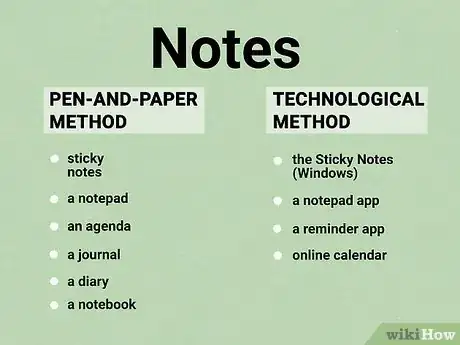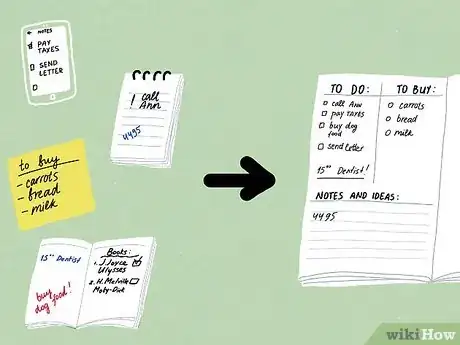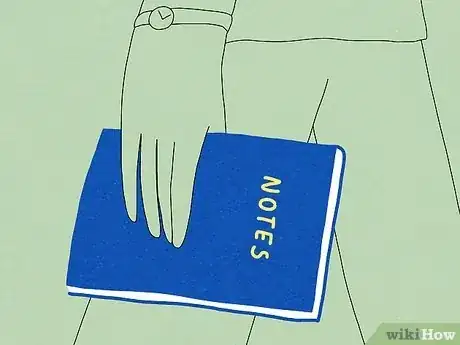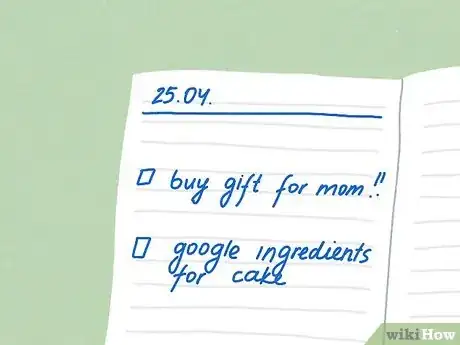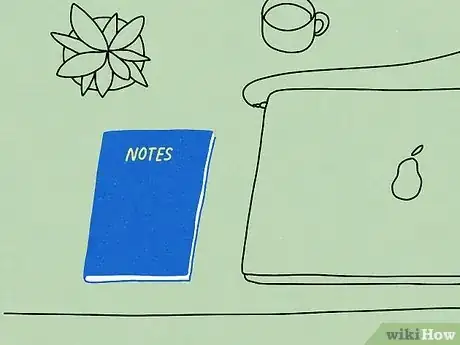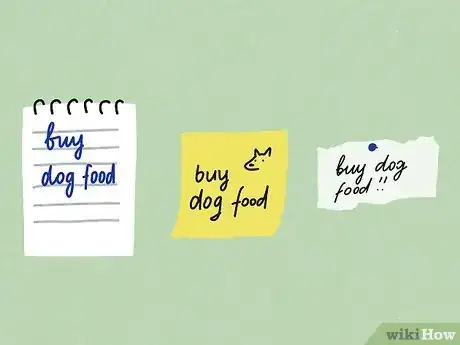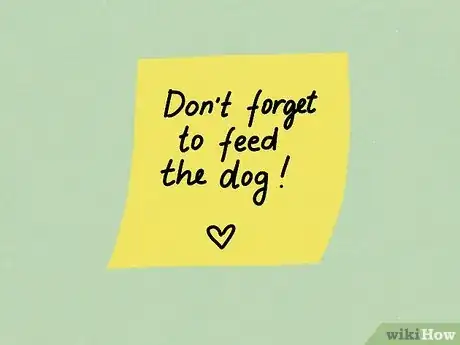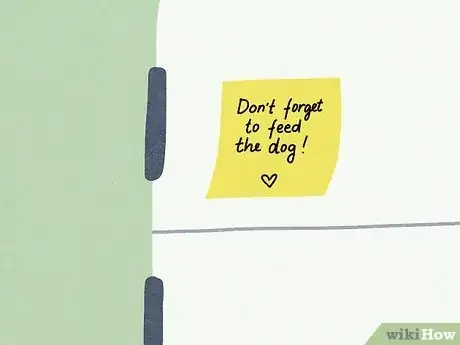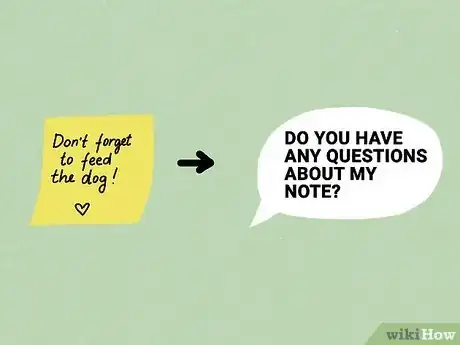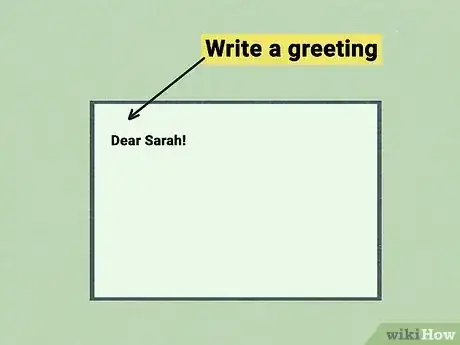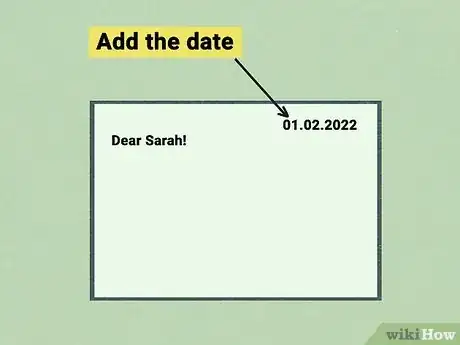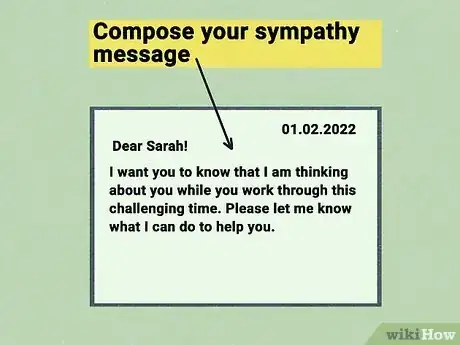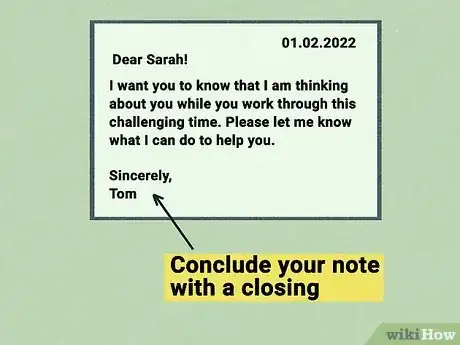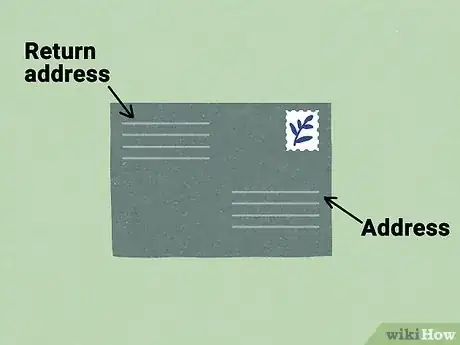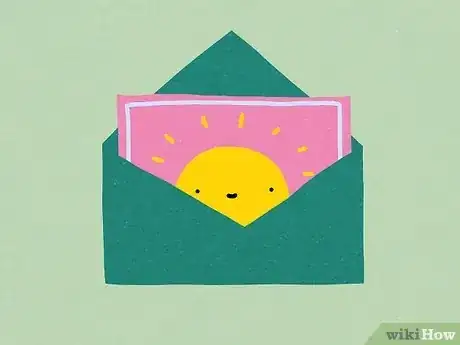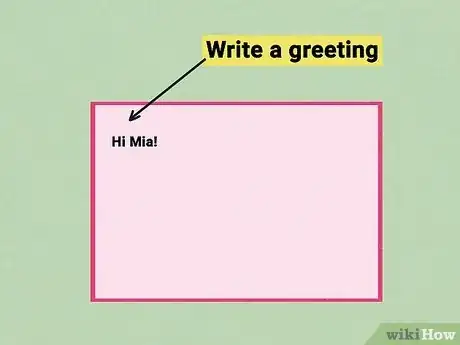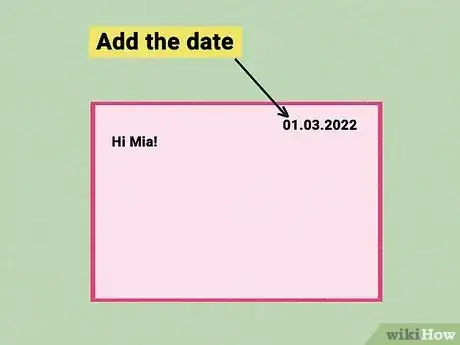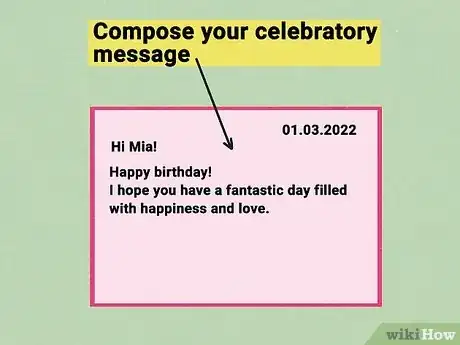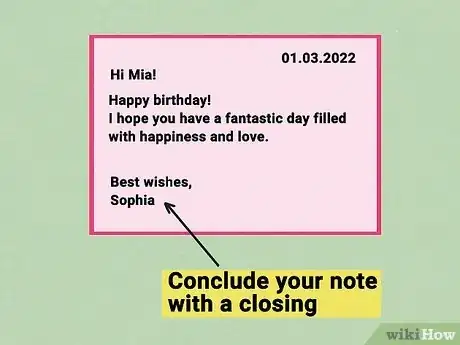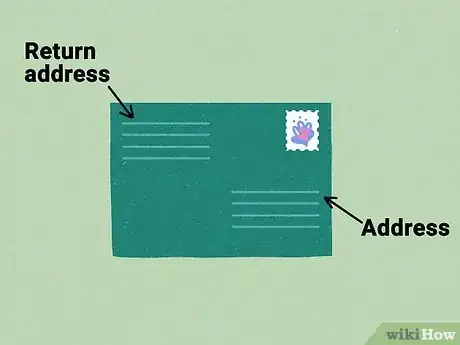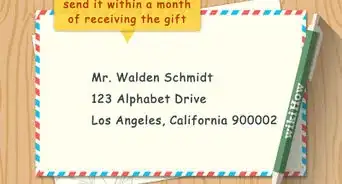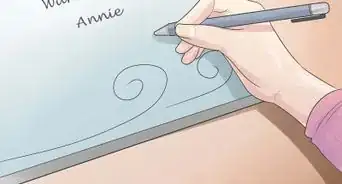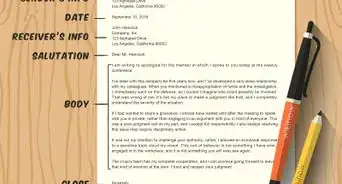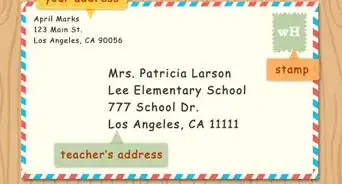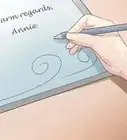X
wikiHow is a “wiki,” similar to Wikipedia, which means that many of our articles are co-written by multiple authors. To create this article, 14 people, some anonymous, worked to edit and improve it over time.
This article has been viewed 64,097 times.
Learn more...
A note can be defined as a few different things, but most importantly, it can be a short, informal letter, or it can be a short record of something that is written down to help jog the memory later.[1] Notes and letters are easily confused, because of the fact that a note is considered an informal letter. However, there are distinct differences between the two, including how they are written.
Steps
Method 1
Method 1 of 4:
Writing Notes to Yourself
-
1Choose how you are going to write these notes. You have a wealth of options for writing yourself a note. You will have to decide what method works best for you to help yourself remember things.
- You could choose the traditional pen-and-paper method: Options here include sticky notes, a small notepad, an agenda, a journal, a diary, or a spiral-bound notebook.
- Alternatively, you could choose a technological method: You can try the Sticky Notes program on Windows, a notepad app on your smartphone, a reminder app on your smartphone, or your preferred online calendar, such as Google Calendar or iCal.
-
2Be consistent with whatever method you chose from Step 1 above. Some people find it a challenge to use one method only for notes and reminders. The problem here is that too many systems for writing yourself reminder notes gets messy and confusing.
- When you need a particular note to help you remember something, you will likely have no idea where it is if you use sticky notes, a calendar, a journal, and an app on your smartphone, as an example.
- There is no way to organize your notes to yourself when you use many different systems. You might have the urge to write something down when it is inconvenient to do so using the system you normally use for that type of thought (e.g. you always write recipe ideas down in your journal, but you get an idea when you are not at home).
- Your reminders and notes are simply more likely to get lost when lots of systems are involved. That may not always mean physically lost; it could also mean mentally lost (i.e. forgotten).
Advertisement -
3Keep your note system with you wherever you go. This is easy if you choose a technological system using your smartphone, because most people have their smartphones on them at all times. However, if you choose a pen-and-paper method, figure out how to have that with you at all times.
- When the urge strikes to write down a note to yourself, you have the tool you need to do so handy.
- Your notes will stay organized all in one place if you always have that tool with you.
-
4Write your reminder, idea, thought, et cetera down as soon as you have it. Now, “write” could be figurative here, if you choose a technological method, in which case you would type it.
- Writing it down immediately ensures you will not lose that thought.
- If you chose an option like sticky notes, be sure that you keep the sticky note in a safe place until you can put it wherever you choose to safely store them, if you are not near that place.
- You do not necessarily need to use complete sentences when writing a note, as long as you are confident that you will know what you meant when you come back to look at it later.
-
5Store the notes to yourself in a safe place. Just as it is important to only have one system to writing yourself notes, it is just as important to keep all of your notes to yourself in a safe place.
- If you keep notes to yourself on your smartphone or computer, they will always be there. However, if you choose to use a word processing program for writing notes to yourself, remember to save the documents.
- You might want to keep all of your notes to yourself in something like a journal or diary. Always have that with you or know where it is so that you can access it when you need it.
- Keeping your notes on or near your desk is usually a pretty good idea, as that is one place you likely spend much of your day.
- Sticky notes work really well for some people, but they get messy quick. They also lose their stickiness eventually, causing them to fall from wherever you stuck them and potentially get lost. Keep this in mind if you use sticky notes!
Advertisement
Method 2
Method 2 of 4:
Writing Notes to Someone Else
-
1Decide how you will leave notes for someone else, like a significant other, parent, sibling, or friend. These will likely be quick notes that you use to remind them of something or to give a brief message.
- Using a technological tool for leaving notes likely will not work when trying to leave a note for someone else, so it is best to choose a pen-and-paper method.
- Always have something ready for writing notes, like a small notepad, sticky notes, or some scrap paper.
-
2Clarify what your note is about. As you write the note, be sure to stick to your reminder or message.
- Keep it short and simple. It does not necessarily have to be written in complete sentences, but make sure the recipient will understand what it means.
- Avoid getting off-topic, especially if it is a reminder note. The recipient may get confused about what you are asking him/her to do if you get off-topic.
- Adding a time and/or date to the note will help if it is time-sensitive. This will help the recipient understand when you left the note and how much time he/she has remaining to take care of the task.
-
3Leave the note in an easy-to-find place. This seems like a common sense suggestion, but sometimes, notes are left in inconvenient places and are never found. Here are some common helpful suggestions.
- On the refrigerator or freezer door
- On the kitchen counter
- On the dining table
- On the bathroom counter
- In his/her lunchbox
- On his/her desk
- On the seat of his/her car
-
4Follow up with the recipient to make sure he/she received it. Simply leaving the note is not enough to make sure that your recipient will receive it. You want to follow up with him/her to verify.
- If he/she follows up with you first, then there is no need to ask about it again, unless you asked him/her to complete some sort of task that you want to ensure got completed.
- Be polite and friendly without being pushy. Asking, “Did you see my note this morning? I hope I left it in a convenient place for you” or “Do you have any questions about my note?” are some examples.
Advertisement
Method 3
Method 3 of 4:
Writing a Sympathy Note
-
1Buy a card with an envelope. It can be a plain card, or it can have an appropriate design, if you choose.
- Because it is a card for a sympathy note, it should be somewhat professional and serious in appearance. Humorous cards are not appropriate here.
- Your card can be small or large; your note will only be a couple of sentences, so make sure it is at least big enough to fit those.
- You might want a blank card to write your own note. However, you can buy a card with a message printed in it and add to it with your own note, too.
-
2Write a greeting inside the card. The greeting lets your recipient know that the card is meant for him/her. The greeting should be written inside the card in the top left corner.
- Dear _______,
- Hello ________,
- Hi ________,
-
3Add the date for reference. The date should be written inside the card in the top right corner. The format of the date is your choosing.
- 1/1/2015
- 01/01/15
- January 1, 2015
- 1 January 2015
-
4Compose your sympathy message. There are a variety of situations that require a sympathy note, but the point of a sympathy note is always to express your condolences. It should be no more than 2-3 sentences in length.[2]
- “I am sorry for your loss. I send my condolences to you and your family in this difficult time.”
- “I want you to know that I am thinking about you while you work through this challenging time. Please let me know what I can do to help you.”
- “I know that this was unexpected, and I am here for you however you need me.”
- “You might not feel like it right now, but you are strong, and you will get through this.”
- “You are not alone. You have many relatives and friends who are ready to support you and help you get through this.”
-
5Conclude your note with a closing. Your closing will be dependent on what type of relationship you have with this person. A relative or close friend will require a more personal closing than a coworker, neighbor, or someone less close. Sign your name after the closing.
- Love, ________
- With love, ________
- Your friend, ________
- Sincerely, ________
- Warmly, ________
-
6Prepare the envelope for mailing. Address the envelope and stick a stamp on it; you will also want to write your return address on the envelope. Slide the card into the envelope and seal it. Then, you can mail it to the recipient.
Advertisement
Method 4
Method 4 of 4:
Writing a Celebratory Note
-
1Purchase a card with an envelope. You might want to choose something like personal stationery, or you could pick up a pre-designed card at a store.
- Feel free to make your card bright and exciting, as you are celebrating something with this note.
- Your message, or the message printed on the card you buy, might be humorous, serious, or uplifting. It is your choice.
-
2Write a greeting inside the card. The greeting lets your recipient know that the card is meant for him/her. The greeting should be written inside the card in the top left corner.
- Dear _______,
- Hi ________,
- Hey ________,
- You might also simply write the recipient's name followed by a comma.
-
3Add the date for reference, especially if the note is celebrating a birthday or anniversary. The date should be written inside the card in the top right corner. The format of the date is your choosing.
- 1/1/2015
- 01/01/15
- January 1, 2015
- 1 January 2015
-
4Compose your celebratory message. Your note could be about any of a number of celebratory situations, so make sure it is clear what you are celebrating.[3]
- “Happy birthday! I hope you have a fantastic day filled with happiness and love.”
- “Congratulations on the promotion! You will do an excellent job in your new role.”
- “Congrats on graduating! All of your hard work has paid off. Welcome to the real world!”
- “You should be so proud! Buying your first home is a major accomplishment. I can't wait to visit!”
- “Congratulations on your little bundle of joy! I hope baby and parents are doing well, and I'm looking forward to meeting him/her!”
-
5End your note with a closing and a signature. Depending on your relationship with the person, you may have a more or less personal closing.[4]
- Love, ________
- With love, ________
- Your friend, ________
- Sincerely, ________
- Best wishes, ________
-
6Prepare the envelope for mailing by writing the return and mailing addresses and sticking on a stamp. Slide the card into the envelope and seal it. Then, mail it to the recipient.
Advertisement
References
- ↑ http://dictionary.reference.com/browse/note?s=t
- ↑ https://www.artofmanliness.com/character/etiquette/the-art-of-letter-writing-the-sympathy-note/
- ↑ https://www.indeed.com/career-advice/career-development/congratulations-note-and-email-examples
- ↑ https://www.indeed.com/career-advice/career-development/congratulations-note-and-email-examples
About This Article
Advertisement
